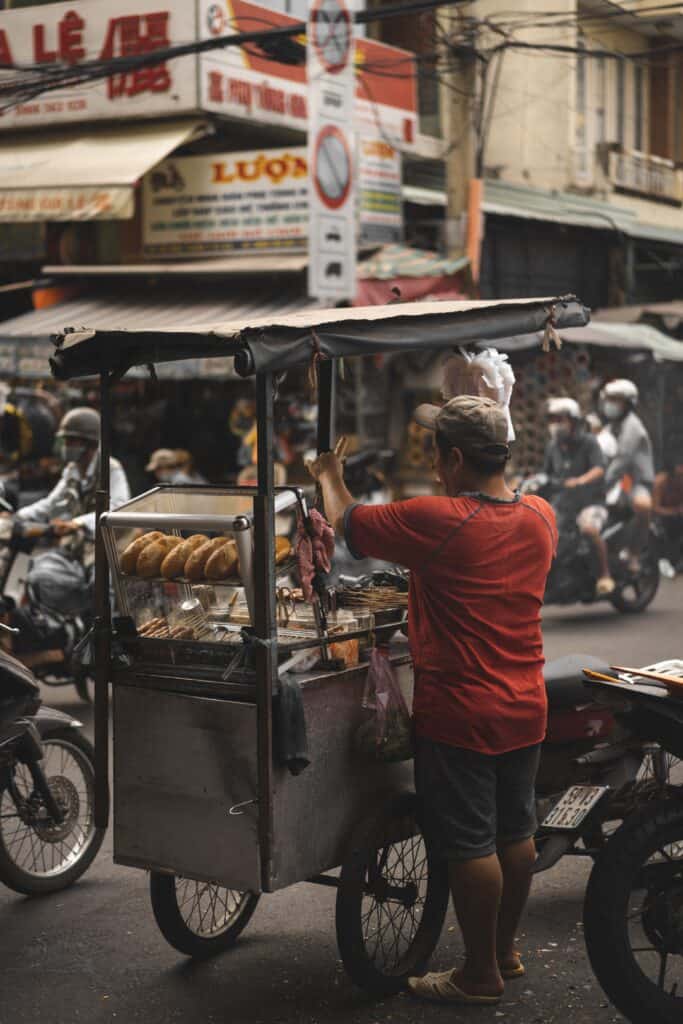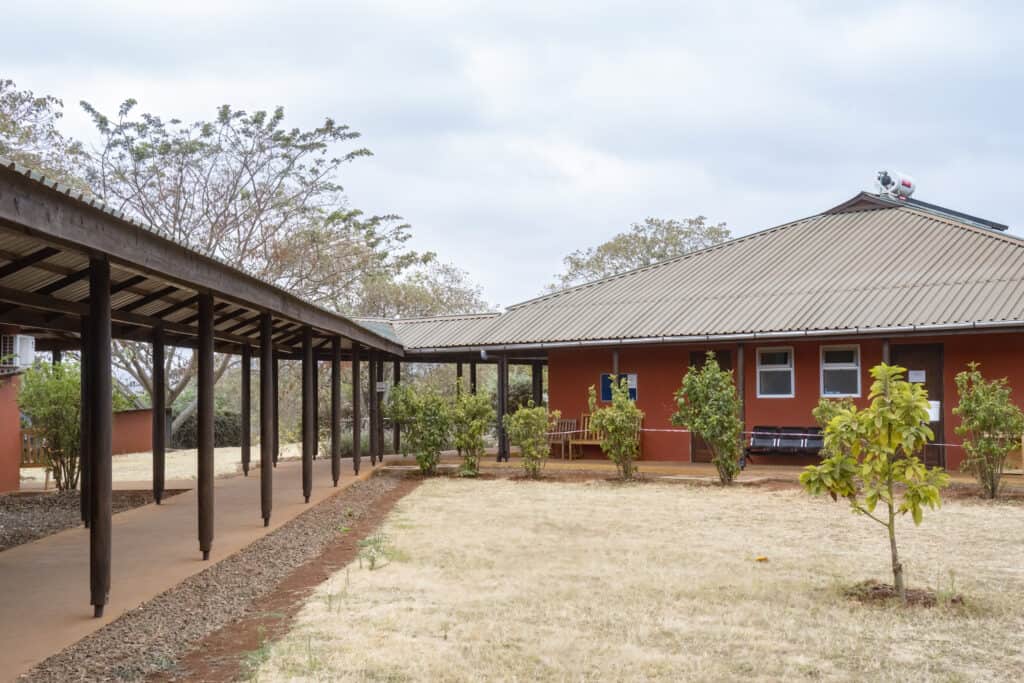Traveling solo can be a liberating experience, allowing adventurers to fully immerse themselves in new destinations and cultures. However, it also presents unique challenges, especially when an unexpected medical emergency occurs. Knowing how to handle such situations is crucial for any solo traveler, as it can make the difference between a manageable mishap and a completely derailed journey.
To help ensure the safety and well-being of any solo traveler, this article provides essential information on how to properly manage medical emergencies while on the go. From recognizing the signs of a potential health crisis to seeking prompt medical attention and navigating the complexities of insurance coverage, readers will gain the knowledge necessary to confidently face any health-related challenges that may arise during their solo adventures.
Armed with these practical tips and strategies, solo travelers will be better equipped to address unexpected health emergencies and maintain control of their journey, allowing them to focus on what matters most: embracing new experiences and making unforgettable memories.
Pre-Trip Preparation
Medical Check-Up and Vaccinations
Before embarking on a solo adventure, it is crucial to schedule a medical check-up with your doctor. Inform them of your destination and planned activities to receive relevant advice for maintaining your health during the trip. Along with a routine check-up, ensure you are up-to-date with any necessary vaccinations, and consider any additional immunizations recommended for your destination. This step is essential in preventing potential health risks and illnesses.
Purchasing Travel Medical Insurance
Investing in comprehensive travel medical insurance is a must when traveling solo. This kind of insurance typically covers emergency medical expenses, including hospitalization, medications, and evacuation. When selecting a policy, pay attention to cover limits, deductibles, and any exclusions related to pre-existing conditions or adventure sports. Keep a copy of your insurance policy with you while traveling.
Preparing a Medical History and Essential Documents
Compile a list of your medical history, including any chronic conditions, allergies, and medications you are taking. Having this information readily available can expedite medical assistance in case of an emergency. It is also helpful to have a copy of recent lab results and doctor’s notes, as well as relevant prescriptions if you need to purchase medication abroad.
In addition to your medical history, make sure to carry essential documents such as:
- A copy of your passport
- Travel medical insurance details
- Emergency contact information
- A list of local hospitals or medical centers at your destination
Remember, preparation is key when it comes to handling medical emergencies during solo travel. By taking these crucial steps in advance, you can ensure a safer and more enjoyable journey.
Packing Essentials
When traveling solo, it is crucial to be prepared for any medical emergencies that may arise. This section will cover the necessary items one should pack to ensure a safe and healthy journey.
Personal First Aid Kit and Medications
A personal first aid kit is essential for any solo traveler. It should include basic items such as:
- Bandages
- Gauze
- Adhesive tape
- Antiseptic wipes
- Tweezers
- Scissors
- Pain relievers (e.g., ibuprofen or acetaminophen)
In addition to a first aid kit, travelers should also pack any prescription medications they may need, as well as some over-the-counter medicines to address common issues. Carry a supply of:
- Antihistamines (for allergies)
- Charcoal tablets (for digestive upsets)
- Motion sickness medicine (for transportation issues)
Important Documents and Contact Information
When traveling solo, it’s essential to have important documents and contact information readily available in case of a medical emergency. These items include:
- Passport: Ensure it’s up-to-date and has a copy in your travel bag for identification purposes.
- Emergency contact: Have a list of emergency contacts, both in your home country and at your travel destination. It’s a good idea to keep a physical copy as well as save the information electronically.
- Cash: Carry a small amount of local currency for emergencies, as not all places accept credit cards.
- Travel insurance details: Make sure to have your travel insurance information handy, so you can get assistance when needed.
- Phrasebook: While not a document, carrying a phrasebook or translation app can be incredibly helpful in communicating your needs to local people in case of a medical emergency.
With these essentials on hand, solo travelers can confidently embark on their journeys, knowing they are prepared for any medical situation that may arise.
Staying Healthy While Traveling
Traveling solo can be an exciting and rewarding experience, but it’s essential to prioritize your health to avoid any unexpected medical emergencies. In this section, we will discuss food and water safety tips and maintaining physical well-being.
Food and Water Safety Tips
To prevent food poisoning and diarrhea, it’s crucial to take precautions when consuming meals and beverages during your travels. Some practical suggestions include:
- Opt for freshly cooked, hot foods instead of cold or lukewarm dishes.
- Avoid raw or undercooked meats, eggs, and seafood.
- Wash your hands thoroughly with soap and water before eating.
- Use alcohol-based hand sanitizer if soap and water are unavailable.
- Drink bottled water and avoid tap water, ice cubes, and drinks with unknown water sources.
By following these precautions, you can minimize the risk of foodborne illnesses like flu and fever.
Maintaining Physical Wellbeing
While exploring new destinations is undoubtedly thrilling, it’s essential to take care of your body to remain in good health. Here are a few tips to maintain your physical well-being:
- Stay hydrated by drinking sufficient amounts of clean, bottled water.
- Avoid excessive alcohol consumption, as it can lead to dehydration and impair your judgment.
- Get adequate rest and sleep to give your body time to recharge and recover.
- Set aside time for relaxation, such as reading a book, listening to music, or meditating.
- Engage in light exercises or stretching to keep your body active and flexible.
Remember that prevention is better than cure. By following these food and water safety tips and maintaining your physical well-being, you can significantly reduce the likelihood of a medical emergency during your solo travels.
Dealing with Minor Illnesses and Injuries

When traveling solo, it’s crucial to know how to handle minor medical issues that may arise. This section will address seeking medical supplies and treatment, as well as navigating language barriers that may occur in the process.
Seeking Medical Supplies and Treatment
For minor illnesses and injuries, one of the first steps is to find a local pharmacy. Most destinations have pharmacies where over-the-counter medications can be obtained. It’s recommended to stock up on essentials such as pain relievers, band-aids, and antiseptics.
If experiencing minor symptoms, consider purchasing over-the-counter medications, as they can often alleviate discomfort from common ailments. However, if the issue persists or worsens, seeking professional medical treatment is advised.
Some medications, such as antibiotics, will require a prescription from a doctor. In case of more severe symptoms, consult with a healthcare provider who can assess the condition and prescribe the necessary treatment.
Navigating Language Barriers
Language barriers can present challenges when it comes to obtaining medical care in a foreign country. Here are some strategies to help overcome these obstacles:
- Use a translation app: Download a translation app on your phone to facilitate communication between you and the pharmacist or medical staff. These apps might not be perfect, but they can be helpful in conveying basic information.
- Ask hotel staff for assistance: If staying at a hotel, ask the front desk for help in locating a pharmacy or finding a doctor who speaks your language.
- Carry a list of medical terms: Prepare a list of essential medical terms and phrases in the local language to aid communication.
By being prepared and knowledgeable about how to handle minor medical emergencies while traveling solo, you can ensure a smoother and safer journey.
Handling Serious Medical Emergencies
Assessing the Situation and Seeking Help
When faced with any serious medical emergency while traveling solo, it is crucial to remain calm and assess the situation. Determine the severity of the injury or illness. If you’ve been in a car accident or experienced a natural disaster, the priority should be to ensure that both yourself and any others with you are safe from further harm.
Once the immediate danger has passed, consider the need for medical attention. Evaluate if you can manage the ailment on your own, or if it’s necessary to seek help from a doctor. In cases where medical attention is required, locate the nearest medical facility. This can be either a hospital, an urgent care facility, or a local clinic. Make use of available resources, such as GPS, local signage, or asking nearby locals for directions to ensure you reach the appropriate healthcare center.
Emergency Medical Evacuation
In some situations, the best course of action may be an emergency medical evacuation, especially if the problem is severe, and local hospitals or medical facilities are unable to offer the appropriate standard of care. Medical evacuation is the process of transporting a patient from their current location to another facility, typically in another country where a higher standard of care can be provided.
If you require medical evacuation, contact your travel insurance provider. Many providers offer 24/7 emergency assistance and can help you arrange and cover the costs of medical evacuations, ensuring you receive the necessary care. Make sure to have your policy number and details with you, as the provider will need this information to confirm coverage. Be prepared to describe the situation and any relevant details regarding the injury or illness.
Though traveling solo can be an enriching experience, it is vital to be prepared for any medical emergencies by familiarizing yourself with local healthcare facilities and having an action plan. This will help ensure a safe and enjoyable journey.
Navigating Health Insurance and Financial Matters
When traveling solo, it is essential to understand your health insurance and financial options in case of a medical emergency. One of the first things to consider is purchasing travel insurance. Travel insurance policies typically include coverage for medical emergencies, evacuation, and repatriation, ensuring that you are financially protected if an emergency arises.
Before purchasing travel insurance, it’s important to review your current health insurance plan to determine whether it offers any coverage for medical expenses incurred while traveling. Some plans provide limited coverage for international travel, while others may not cover any expenses at all. Knowing the extent of your coverage will help you make informed decisions about what type of travel insurance policy to purchase.
When selecting a travel insurance policy, be mindful of the specifics of your coverage. Look for policies that offer comprehensive coverage for medical emergencies, including hospital stays, emergency transportation, and necessary medical supplies. Additionally, verify whether your policy covers pre-existing conditions, as some insurance providers may exclude them from coverage. You may need to purchase a separate policy to ensure adequate coverage for any pre-existing conditions.
Credit cards can also play a role in providing financial assistance during medical emergencies. Some credit card companies offer travel insurance benefits as part of their card member perks. These benefits may include coverage for medical expenses, evacuation, and repatriation. Be sure to review the terms and conditions of your credit card’s travel insurance benefits to understand the scope and limits of the coverage provided.
In case of a medical emergency, it is crucial to keep track of all your expenses. Keep receipts and documentation for any medical services received, as these will be necessary when filing a claim with your insurance company. Also, notify your insurance provider as soon as possible to inform them of the situation and receive guidance on the claim process.
To summarize, navigating health insurance and financial matters while traveling solo involves understanding your current coverage, purchasing travel insurance, considering credit card benefits, and maintaining proper documentation of expenses. By thoroughly planning and being aware of your financial resources, you can confidently face any medical emergency that may arise during your travels.
Post-Emergency Recovery and Follow-Up
After experiencing a medical emergency while traveling solo, it is crucial to focus on recovery and follow-up. Ensuring proper communication with family and friends back home can provide much-needed support during this challenging time. Updating them about the situation and any necessary adjustments to planned activities will help alleviate concerns.
When recovering from being sick while traveling solo, it is essential to continue taking prescribed medicine even after feeling better. Following medical professionals’ advice ensures a full recovery, so adhering to the recommended treatment plan is a must. While it is tempting to jump back into the exciting aspects of solo travel, giving oneself ample time to recuperate by prioritizing rest is wise.
Depending on the severity of the medical emergency, it might be necessary to remain at the destination for an extended period or return home. In either case, contacting the airline to discuss options for adjusting flights is a practical step. Many airlines may offer flexibility or assistance in such circumstances.
Vigilance is also advised, as theft and other security issues can be a concern during a vulnerable period. Ensuring that personal belongings are secure and travel documents are safely stored should be a priority. Having copies of essential paperwork, such as insurance policies and medical records, can help ease the follow-up process.
Recovery from a medical emergency may involve further treatment or tests, and accessing quality medical facilities could be essential. Researching appropriate clinics and hospitals at the destination or connecting with local support groups can provide valuable information for continued care.
In conclusion, post-emergency recovery and follow-up require a structured approach when dealing with a medical emergency during solo travel. Communicating with family, adhering to medical advice, adjusting plans as necessary, prioritizing security, and accessing suitable medical facilities all contribute to a successful recovery.
Frequently Asked Questions
What are the essential steps to take during a medical emergency?
In case of a medical emergency while traveling solo, remain calm and call the local emergency number. If possible, get to a safe and comfortable location before seeking medical assistance. Alert your emergency contacts and update them on your situation, and make notes of any important events leading up to the event for future reference.
Which travel insurance providers cover medical emergencies for solo travelers?
Many travel insurance providers offer coverage for medical emergencies for solo travelers. Some popular options include Allianz Global Assistance, World Nomads, AIG Travel Guard, and Travelex. It is essential to compare policies and read the fine print to ensure the specific coverage is adequate for your travel needs.
How can I prepare a first aid kit for solo travel?
A well-prepared first aid kit for solo travel should include essentials like adhesive bandages, gauze, alcohol pads, and antiseptic wipes. Also, consider adding personal medications, pain-relief tablets, an emergency blanket, a whistle, and any other supplies needed for specific medical conditions or activities.
Which emergency contacts should I keep handy while traveling alone?
It is crucial to have a list of emergency contacts, both at home and in your destination country. This should include your personal contacts, embassy or consulate, medical facilities, and local emergency services. Store this information in your phone and carry a physical copy in your wallet or bag.
How can I recognize and assess a medical emergency?
Recognizing a medical emergency is vital for prompt action. Signs of a medical emergency may include difficulty breathing, severe pain, rapid heartbeat, sudden slurred speech, severe headache, and uncontrolled bleeding. Trust your instincts and seek immediate medical assistance if you suspect something is seriously wrong.
What resources are available for assistance in foreign countries?
When traveling, it’s essential to know local resources for assistance. Along with local emergency services, consider familiarizing yourself with the location of hospitals and medical centers. Additionally, check your destination’s embassy or consulate’s website for a list of recommended medical facilities and English-speaking doctors in the area.








